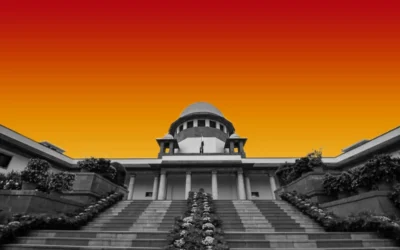BNS Section 207 – Preventing service of summons or other proceeding, or preventing publication thereof
The Indian Penal Code (IPC) Section – 173
Understanding BNS-207: Preventing Service of Summons or Other Proceedings
Obstructing the delivery or publication of legal documents like summons, notices, or orders is a serious offense that disrupts the justice system. BNS-207 is a legal provision that penalizes individuals who intentionally prevent the service or publication of such documents. Let’s break this down in simple terms.
What is BNS-207?
BNS-207 is a law that punishes individuals who intentionally prevent the delivery or publication of legal documents like summons, notices, orders, or proclamations issued by a competent public servant. This ensures that legal processes are not obstructed and individuals comply with their legal obligations.
Key Elements of BNS-207
To understand this law, let’s look at its main components:
| Element | Description |
|---|---|
| Preventing Service | The person must intentionally obstruct the delivery of legal documents to themselves or others. |
| Affixing or Removing Notices | The person must hinder the lawful attachment or removal of notices from designated places. |
| Preventing Proclamations | The person must obstruct the lawful making of public proclamations. |
| Legal Documents | The documents include summons, notices, orders, or proclamations issued by a competent public servant. |
Types of Offenses and Punishments
BNS-207 covers two scenarios with different penalties:
Clause (a): General Offenses
| Punishment | Details |
|---|---|
| Imprisonment | Up to 1 month. |
| Fine | Up to ₹5,000. |
| Both | The court may order both imprisonment and a fine. |
Clause (b): Specific Offenses (Court Attendance or Document Production)
| Punishment | Details |
|---|---|
| Imprisonment | Up to 6 months. |
| Fine | Up to ₹10,000. |
| Both | The court may order both imprisonment and a fine. |
Legal Procedure for BNS-207
Here’s how the legal process works for this offense:
| Aspect | Details |
|---|---|
| Cognizable or Non-cognizable | Non-cognizable (police cannot arrest without a warrant). |
| Bailable or Non-bailable | Bailable (the accused can seek bail). |
| Court Jurisdiction | The case can be tried by any Magistrate. |
Why is BNS-207 Important?
This law is crucial for the following reasons:
- Ensures Compliance: It ensures that individuals do not obstruct legal processes and comply with their obligations.
- Maintains Judicial Integrity: It upholds the integrity of the judicial system by preventing the obstruction of legal documents.
- Protects Public Trust: It ensures that legal processes are respected and followed, maintaining public trust in the justice system.
Key Takeaways
- BNS-207 applies to individuals who intentionally prevent the service or publication of legal documents like summons, notices, orders, or proclamations.
- The offense is divided into two scenarios: general offenses and specific offenses related to court attendance or document production.
- Punishment varies:
- For general offenses: Up to 1 month imprisonment, ₹5,000 fine, or both.
- For specific offenses: Up to 6 months imprisonment, ₹10,000 fine, or both.
- The case is non-cognizable, bailable, and can be tried by any Magistrate.
Example Scenario
Let’s take an example to understand this better:
- Case (Clause a): A person refuses to accept a notice from a government officer regarding a property dispute and prevents its delivery.
- Outcome: The person can face up to 1 month imprisonment, a ₹5,000 fine, or both.
- Case (Clause b): A person removes a court summons affixed to their door, which requires them to appear in person and produce documents.
- Outcome: The person can face up to 6 months imprisonment, a ₹10,000 fine, or both.
Final Thoughts
BNS-207 is an important law that ensures individuals respect and comply with legal processes. If you ever come across someone obstructing the service or publication of legal documents, remember that the law is there to address such misconduct.

